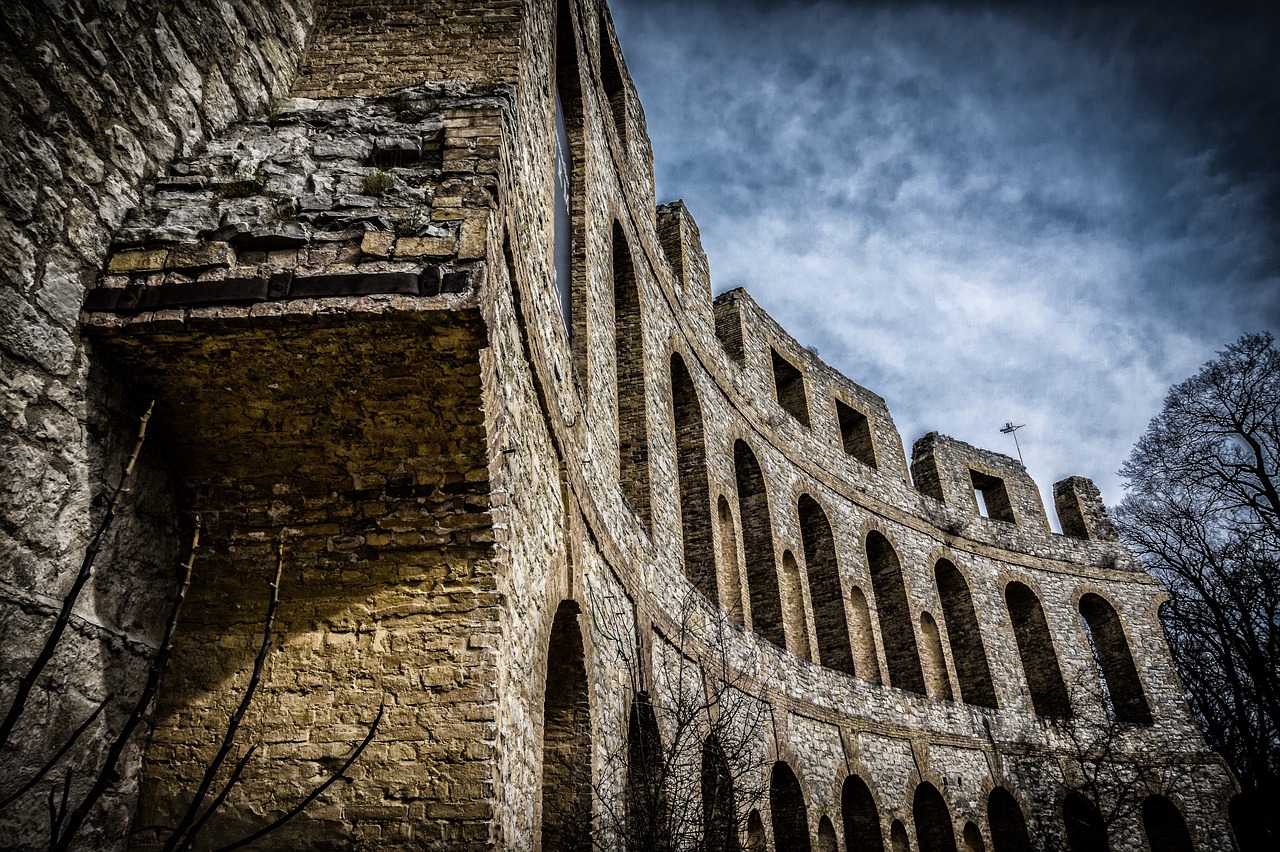The Legacy of Ancient Civilizations on Contemporary Culture
When we look around at the world today, it's fascinating to see how the echoes of ancient civilizations still reverberate through our modern lives. The traditions, beliefs, and innovations of societies like the Egyptians, Greeks, and Romans have left an indelible mark on contemporary culture, shaping everything from art and architecture to language and societal norms.
Ancient art serves as a timeless source of inspiration, with sculptures, paintings, and pottery from bygone eras influencing artists worldwide. The intricate details of ancient artworks have sparked creative movements that continue to evolve and captivate audiences today. The skill and craftsmanship of these ancient artisans have set a standard that artists strive to emulate.
Architectural marvels such as the pyramids, Parthenon, and Colosseum stand as testaments to the ingenuity and vision of ancient builders. These structures not only showcase remarkable engineering feats but also inspire modern architects and urban planners in their designs. The grandeur and majesty of these ancient monuments continue to awe and inspire awe in contemporary society.
Philosophical and ethical teachings from the likes of Plato, Aristotle, and Confucius have laid the groundwork for moral and intellectual discourse throughout history. The enduring wisdom of these ancient thinkers resonates in contemporary debates on ethics, politics, and human nature. Their ideas continue to shape our understanding of the world and our place within it.
Mythology and folklore have woven a rich tapestry of stories that transcend time and culture. Ancient myths and legends, from the tales of gods and heroes to folklore passed down through generations, continue to captivate audiences in literature, film, and popular culture. These narratives serve as allegories for the human experience, offering insights into universal truths and timeless themes.
The evolution of language and writing systems has been profoundly influenced by ancient civilizations. From the pictorial symbols of hieroglyphics to the structured characters of cuneiform and Latin scripts, these ancient writing systems have shaped the development of modern languages and communication technologies. The written word remains a powerful tool for expression and communication, a legacy passed down through the ages.
Ancient civilizations made significant scientific contributions that paved the way for modern advancements in medicine, astronomy, and engineering. From the discovery of the circulatory system by the ancient Egyptians to the astronomical observations of the Greeks, these early pioneers laid the foundation for scientific inquiry and technological innovation. Their achievements continue to inspire and inform our quest for knowledge and progress.
Rituals and traditions rooted in ancient cultures persist in contemporary society, serving as a link to our shared heritage. Ceremonies, festivals, and customs handed down through generations connect us to our past and help preserve cultural identity. These rituals provide a sense of continuity and belonging, enriching our lives with a sense of history and tradition.
The social structures and governance systems of ancient civilizations offer insights into the foundations of modern political ideologies and societal norms. From the democratic ideals of ancient Greece to the legal codes of ancient Rome, the governance structures of the past continue to shape our understanding of power, authority, and citizenship. The lessons learned from ancient societies inform our present-day governance and social organization.

Ancient Art and Its Influence
Exploring how the traditions, beliefs, and innovations of ancient civilizations such as the Egyptians, Greeks, and Romans continue to influence modern art, architecture, language, and societal norms.
Ancient art holds a timeless allure that transcends generations, captivating the hearts and minds of contemporary artists and art enthusiasts alike. The intricate details of ancient sculptures, the vibrant colors of paintings, and the craftsmanship of pottery have left an indelible mark on the art world, inspiring new creations and influencing artistic movements worldwide.
The graceful curves of a Greek statue, the expressive brushstrokes of an Egyptian mural, or the intricate patterns adorning Roman vases continue to serve as a wellspring of creativity for modern artists seeking inspiration from the past. The fusion of ancient techniques with modern interpretations results in a rich tapestry of artistic expression that pays homage to the legacy of our artistic ancestors.
Just as a sculptor chisels away at marble to reveal a masterpiece hidden within, contemporary artists sculpt their visions using the timeless principles established by ancient artisans. The influence of ancient art is not confined to museums or history books but resonates through galleries, streetscapes, and digital platforms, connecting the past with the present in a vibrant dialogue of artistic evolution.
Through the lens of ancient art, we glimpse the aspirations, beliefs, and cultural values of bygone civilizations, allowing us to forge a deeper understanding of our shared human experience and the enduring power of creativity to transcend time and space.

Architectural Marvels of Antiquity
Architectural marvels of antiquity stand as testaments to the ingenuity and craftsmanship of ancient civilizations. The pyramids of Egypt, the Parthenon in Greece, and the Colosseum in Rome are not just structures of stone and mortar but reflections of the cultural, religious, and technological advancements of their time. These iconic buildings have left an indelible mark on modern architecture, inspiring architects and designers to push the boundaries of creativity and innovation.
The pyramids, with their precise alignment and grandeur, continue to intrigue and awe visitors, sparking debates and theories about their construction and purpose. The Parthenon, a symbol of classical Greek architecture, embodies the ideals of harmony and proportion, influencing architectural styles for centuries to come. Similarly, the Colosseum, an engineering marvel of ancient Rome, showcases the mastery of amphitheater design and crowd management, setting a standard for entertainment venues worldwide.
Not only do these architectural wonders serve as tourist attractions and historical landmarks, but they also serve as living lessons in structural integrity, aesthetic beauty, and cultural significance. The intricate details, innovative techniques, and monumental scale of these ancient buildings continue to captivate and inspire architects, historians, and enthusiasts alike, fostering a deep appreciation for the architectural achievements of the past.

Philosophical and Ethical Teachings
Exploring how the traditions, beliefs, and innovations of ancient civilizations such as the Egyptians, Greeks, and Romans continue to influence modern art, architecture, language, and societal norms.
When delving into the philosophical and ethical teachings of ancient civilizations, one cannot help but be astounded by the timeless wisdom imparted by luminaries like Plato, Aristotle, and Confucius. These ancient thinkers laid the groundwork for contemporary moral and intellectual discourse, shaping the way we ponder complex ethical dilemmas and philosophical inquiries.
Their profound insights into human nature, justice, and the pursuit of knowledge have transcended the barriers of time, resonating with modern-day scholars, ethicists, and philosophers. The enduring relevance of their teachings serves as a guiding light in navigating the complexities of our ever-evolving society.
Through their philosophical musings on virtue, ethics, and the nature of reality, these ancient sages invite us to reflect on our own values, beliefs, and moral compass. Their intellectual legacy acts as a beacon of wisdom, illuminating the path towards a more enlightened and ethical existence.
By exploring the ethical principles and moral frameworks established by these ancient philosophers, we gain a deeper understanding of our place in the world and our responsibilities towards one another. Their timeless teachings continue to inspire critical thinking, ethical reasoning, and introspection in our contemporary lives, fostering a culture of intellectual inquiry and moral reflection.

Mythology and Folklore in Today's Culture
Mythology and folklore have always been deeply ingrained in human culture, serving as the foundation of storytelling and shaping our understanding of the world. In today's culture, ancient myths and folklore continue to captivate audiences through various mediums such as literature, film, and art. These timeless tales not only entertain but also carry symbolic significance, reflecting universal themes and archetypes that resonate with people across generations.
One of the reasons for the enduring popularity of ancient mythology in contemporary culture is its ability to tap into the collective unconscious, evoking emotions and sparking imagination. Whether it's the epic adventures of Greek heroes like Hercules and Odysseus or the mystical creatures of Norse mythology, these stories have become cultural touchstones that inspire creativity and provide insights into human nature.
Moreover, mythology serves as a mirror to society, reflecting its values, fears, and aspirations. By exploring ancient myths and folklore, we can gain a deeper understanding of our own beliefs and cultural heritage. These stories not only entertain but also educate, offering moral lessons and philosophical insights that are still relevant in today's complex world.
Through the reinterpretation of ancient myths in modern contexts, artists and writers continue to breathe new life into age-old tales, keeping them relevant and engaging for contemporary audiences. Whether it's the retelling of classic myths in bestselling novels or the adaptation of folklore in blockbuster movies, the influence of ancient storytelling traditions is unmistakable in today's cultural landscape.

Language and Writing Systems
The development of language and writing systems by ancient civilizations has had a profound impact on how we communicate and record information today. Imagine a world without a written language, where knowledge and stories could only be passed down orally, much like a game of telephone where details get lost in translation. Thanks to the ingenuity of ancient cultures like the Egyptians, Sumerians, and Romans, we now have diverse writing systems that form the basis of modern alphabets and communication technologies. These ancient scripts, such as hieroglyphics, cuneiform, and Latin, laid the foundation for written language as we know it, allowing us to document history, express emotions, and share ideas across time and space.

